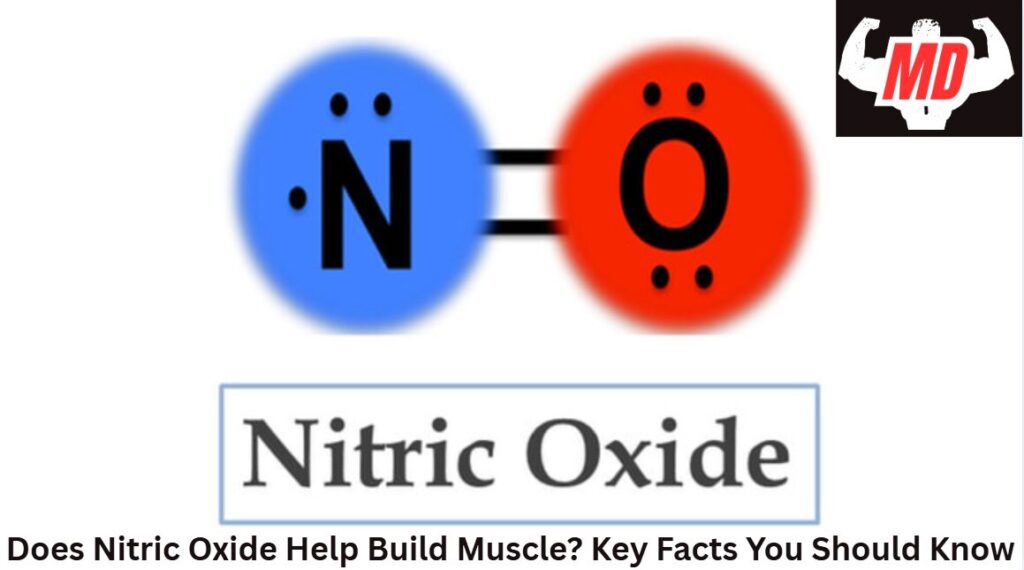Nitric oxide supplements now promise bigger pumps and massive gains at the gym. But do these products actually help build muscle, or are they just another fitness industry gimmick? While NO boosters won’t directly add inches to your arms, they might create conditions that support your muscle-building efforts.
The relationship between nitric oxide and muscle growth involves several physiological processes that could impact your training results. Understanding these connections might just transform your approach to supplementation.
What Is Nitric Oxide and How Does It Work?
Your body naturally produces nitric oxide. It’s primarily responsible for vasodilation, which directly enhances blood flow throughout your system. When your blood vessels dilate, they can transport oxygen and nutrients more efficiently to your working muscles during exercise.
Your body produces nitric oxide through several pathways, including the conversion of amino acids like arginine and citrulline. This process occurs in the endothelium (inner lining of blood vessels), which releases NO to signal smooth muscle cells to relax. The result? Improved nutrient delivery to hungry muscles and potentially better pumps during workouts.

Nitric Oxide’s Link to Muscle Growth
While nitric oxide boosters don’t directly build muscle, they create ideal conditions for growth through enhanced circulation to working muscles.
When your blood vessels dilate, you’ll experience better “pumps” during workouts and improved nutrient delivery to muscle tissues. This effect allows you to train longer with greater endurance before fatigue sets in. The enhanced blood flow may also accelerate recovery between sets and workouts.
Think of nitric oxide as a support system rather than a direct muscle builder. It helps create an environment where your training can be more productive and your recovery more efficient. For serious lifters, these indirect benefits can translate to better overall results when combined with proper training and nutrition.
Common Nitric Oxide Boosters and Ingredients
Several key ingredients have proven effective at boosting nitric oxide production in the body, making them popular choices in pre-workout supplements. L-citrulline leads the pack as it converts more efficiently to nitric oxide than L-arginine, which often breaks down before reaching circulation.
Beetroot extract delivers natural dietary nitrates that directly increase nitric oxide levels without relying on the arginine pathway. This effect makes it particularly effective for those who don’t respond well to amino acid precursors.
For added effect, some pre-workout supplements add ingredients like glycerol or agmatine sulfate. Pair these nitric oxide boosters with caffeine or creatine for a synergistic effect on blood flow and power output during training.

When and How to Use Nitric Oxide Supplements
Timing nitric oxide supplements correctly may improve your training and recovery. Take nitric oxide boosters 30-60 minutes before you train to ensure maximum blood flow during training. Some athletes find L-citrulline (6-8g) more absorbable than L-arginine.
Take nitric oxide supplements daily to prevent tolerance buildup. They work best for high-volume or endurance training. However, those with low blood pressure or heart conditions should consult a doctor first.
Remember, nitric oxide supplements should be taken with water, as dehydration can degrade their performance-enhancing effects.

Potential Side Effects and Limitations
While nitric oxide supplements can enhance training performance, you should be aware of their potential drawbacks. Some users report temporary headaches or dizziness, especially when first starting the supplement.
It’s important to understand the limitations of nitric oxide boosters. They don’t directly build muscle tissue or replace proper training and nutrition. Some users experience diminishing returns over time, with increased fatigue if they rely too heavily on stimulant-based formulas.
Your response may vary greatly. Some people are “non-responders” who feel minimal benefits regardless of dosage. Setting realistic expectations about what this supplement can and cannot do will help you evaluate if it’s worth including in your regimen.
Stacking Nitric Oxide with Other Muscle-Building Tactics
Nitric oxide supplements should complement solid training and nutrition plans. Pair them with steady resistance training for maximum pump and oxygen delivery during workouts.
Time your nitric oxide boosters 30-45 minutes before training, then focus on consuming protein and carbohydrates post-workout when blood flow and nutrient delivery to muscles are enhanced. This strategic approach helps your body utilize the improved circulation for better recovery.
Don’t neglect fundamentals. Proper hydration amplifies nitric oxide’s vasodilation effects, while adequate sleep optimizes your body’s natural recovery processes. Nitric oxide supplements work best as part of a thorough approach, enhancing your training capacity rather than replacing solid nutrition and progressive overload.
Frequently Asked Questions
Do Nitric Oxide Benefits Differ Between Men and Women?
Nitric oxide benefits are similar for both men and women, though hormonal differences may cause slight variations in response. You’ll likely experience comparable improvements in blood flow, endurance, and recovery regardless of your gender.
Can Nitric Oxide Supplements Improve My Pump Without Intense Training?
Nitric oxide supplements can enhance your pump even with moderate exercise by increasing blood flow to muscles. You still need some physical activity to trigger the effect. They won’t create a pump without training.
Do Nitric Oxide Supplements Affect Hormone Levels Like Testosterone?
No, nitric oxide supplements don’t directly affect testosterone or other hormone levels. They primarily work by enhancing blood flow through vasodilation rather than altering your hormonal profile, so don’t expect hormonal benefits from them.
Are Plant-Based Nitric Oxide Boosters as Effective as Synthetic Ones?
Plant-based nitric oxide boosters like beetroot are often as effective as synthetic options. You’ll get similar vasodilation benefits from natural nitrates, though some evidence suggests citrulline may provide slightly more consistent results.
Does Genetics Influence How Well Nitric Oxide Works for Muscle Growth?
Yes, your genetics do influence how you respond to nitric oxide. Your unique genetic profile affects enzyme activity, receptor sensitivity, and blood vessel responsiveness, creating varying results for muscle growth support among different individuals.



